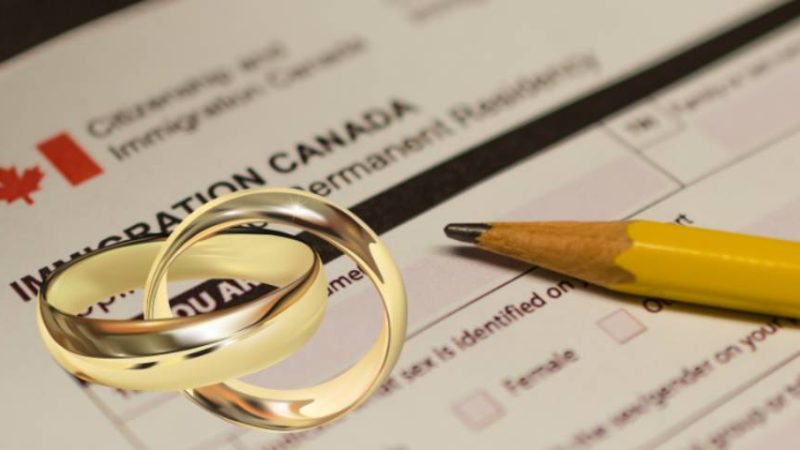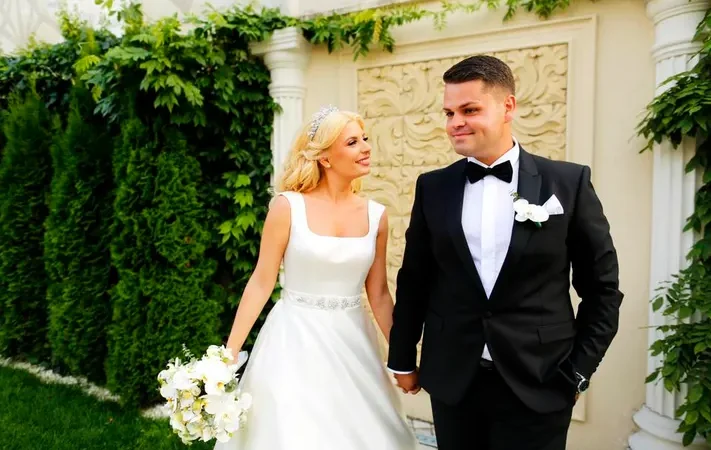In today’s global world, love knows no borders. More and more people are choosing to marry partners from other countries — and for many, this opens the door to a new life abroad. One of the most common paths to residency in Europe is through marriage immigration, a legal process that allows a foreign spouse to live and, eventually, work or even gain citizenship in their partner’s country.
But while the idea may sound simple — fall in love, get married, and move to Europe — the reality is often far more complex. Laws vary from one country to another, and authorities carefully examine every case to ensure the relationship is genuine.
If you’re considering marriage immigration as your pathway to Europe, this guide will help you understand everything you need to know before taking that step.
What Marriage Immigration Really Means
Marriage immigration refers to the process of obtaining legal residency in a foreign country through marriage to one of its citizens or permanent residents. It can eventually lead to citizenship, but it is not automatic. Each European country has its own immigration policies and procedures.
For example:
-
In Germany, couples must prove that their marriage is real and that they live together, usually for at least two years.
-
In France, couples are expected to provide strong evidence of shared life before being eligible for long-term residence.
-
In Sweden, both partners must show that they can support themselves financially.
So while marriage immigration can indeed be a pathway to building a life in Europe, it requires careful planning, patience, and honesty.
Legal Steps in the Marriage Immigration Process
The process of marriage immigration varies depending on the country, but the general stages are similar:
-
Obtain a Certificate of No Impediment to Marriage
This document proves that you are legally free to marry. -
Translate and Legalize Your Documents
Birth certificates, passports, and any divorce papers must be translated into the local language and legally certified. -
Apply for a Visa or Residence Permit
Depending on the country, you may need to apply for a fiancé(e) visa or marriage visa. -
Get Married Legally
You can marry in your partner’s home country or at their embassy or consulate. -
Apply for a Residence Permit After Marriage
Once the marriage is registered, you can apply for your residence permit or family reunification visa.
It’s essential to complete every step correctly. Even a small error in documentation can delay your case or lead to rejection.

The Reality Behind Marriage Immigration
One of the biggest misconceptions about marriage immigration is that marriage automatically leads to residency or citizenship.
In reality, immigration officers carefully check whether the relationship is genuine.
They may ask both partners to attend interviews, live together for a set period, or provide evidence like photos, financial records, and shared addresses.
If the authorities suspect that the marriage is not real — often called a “sham marriage” — the visa can be denied, and both partners may face serious legal consequences, including fines or bans from entering the country.
The Emotional and Cultural Challenges
Even if your marriage is built on love, moving abroad and adjusting to a new culture can be emotionally challenging. Marriage immigration is not just a legal process; it’s also a lifestyle transformation.
For example:
-
In Northern Europe, people value independence, privacy, and personal space.
-
In Southern Europe, such as Italy or Spain, family ties and social gatherings are central to life.
Understanding and respecting these cultural differences can make or break an international marriage. Patience, empathy, and communication are key.

Avoiding Fake Marriages
Some people mistakenly believe that a fake marriage can be an easy shortcut to residency. This is a dangerous myth.
Fake marriages for marriage immigration purposes are a criminal offense in most European countries.
Consequences can include:
-
Immediate deportation
-
Permanent entry bans to the EU
-
Legal action against both parties
Authorities are highly skilled at identifying fake relationships, so honesty is always the best policy. If your goal is to live abroad, do it the right way — through a real, meaningful relationship.
Building a Genuine Cross-Border Relationship
True international relationships are based on trust, communication, and shared goals. Here are some tips for building a successful relationship that can lead to marriage immigration:
-
Be Honest About Your Intentions
Talk openly about your plans for the future. Honesty strengthens trust. -
Respect Each Other’s Culture
Learn about your partner’s traditions and values; it helps you connect more deeply. -
Use Trusted Platforms
Meeting people online can be safe and rewarding when done correctly. Use a verified international marriage site like MatchMarry, where profiles are screened and members are genuinely looking for long-term relationships.
Pros and Cons of Marriage Immigration
Like any major life decision, marriage immigration has both advantages and challenges.
Advantages:
-
A legal and safe way to move to Europe
-
The opportunity to build a multicultural family
-
Access to education, healthcare, and better job markets
Challenges:
-
Time-consuming and complex legal processes
-
Cultural adaptation and homesickness
-
Risk of emotional stress if the relationship faces difficulties
Knowing both sides of the story helps you prepare emotionally and practically.
European Countries with Easier Marriage Immigration Policies
Some European countries are more flexible when it comes to marriage immigration.
Here are a few examples:
-
France: After one year of marriage and living together, you can apply for long-term residence.
-
Germany: Grants residency after legal marriage and cohabitation.
-
Portugal: Offers permanent residency after three years of proven marriage.
These rules can change over time, so always check the latest legal requirements before applying.
Is Love Enough?
Love is the foundation of every relationship, but it’s not always enough to make marriage immigration easy.
A successful marriage abroad requires effort, patience, and compromise. You must adapt to new social norms, language, and laws — while building a life together in a completely new environment.
Couples who approach the process with open communication and realistic expectations tend to succeed in the long run.
Final Thoughts
Marriage immigration to Europe is a real and achievable goal, but it demands more than just paperwork.
It’s a journey that tests your emotional strength, cultural understanding, and commitment to your partner.
If you’re ready to start your journey, the best way to meet your future spouse is through a secure and trusted international marriage site like MatchMarry.
Here, you can connect with real people from all over the world who, like you, believe in love that crosses borders — not just for visas, but for building a genuine life together.







